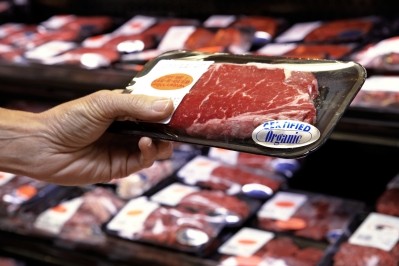‘Appalling’ conditions blamed for spread of COVID-19 in meat sector: ‘A bleak picture of a sector in need of urgent and serious reform’

Coronavirus outbreaks continue to ravage meat processing facilities across Europe. Outbreaks - particularly in Germany, Ireland, the Netherlands and the UK - have highlighted ‘exploitative’ working conditions and ‘insufficient’ safety measures, the European Federation of Food, Agriculture and Tourism Trade Unions (EFFAT) has suggested.
In a new study, EFFAT outlined the effects of coronavirus on the meat sector in various countries across Europe, providing an overview of the working arrangements and business practices pursued by meat companies ‘to cut costs and escape employer liability’.
“It paints a bleak picture of a sector in need of urgent and serious reform, while highlighting instances of good practice as evidence once again of the crucial role for collective bargaining in setting decent labour standards and ensuring fair competition,” EFFAT said of the report.
The federation of trade unions hit out at ‘exploitative’ working conditions, including up to 16 hour working days, low pay, illegal wage deductions and job insecurity. It also flagged ‘overcrowded accommodation’ used by meat processors to house migrant workers, who, it said, are subject to ‘unequal treatment and abuse’.
These conditions have proven a ripe breeding ground for the spread of COVID-19.
The European Union’s meatpacking industry employs 350,000 people. According to data from Greenpeace-backed project Unearthed, at least 37 COVID outbreaks have been reported in abattoirs and meat-packing plants across Europe since March, leading to at least nine factory closures and more than 4,000 workers becoming infected.
“Meat – and all agri-food – workers have shown astounding dedication to their jobs during the COVID-19 pandemic – too often risking their health due to lack of effective health protection measures in order to provide food for our table. We are in their debt,” EFFAT General Secretary Kristjan Bragason stressed.
“The COVID-19 pandemic has revealed to a wider audience issues that EFFAT and its affiliates have been calling out to the EU Institutions and national governments over many years. In many ways it is sad that something as tragic as coronavirus had to happen to raise awareness of the systemic issues affecting the meat sector, such as the abusive sub-contracting which has so harmed numerous workers, especially in Germany.”
Germany's meat sector worst hit by COVID-19
Subcontracting remains a common practice in Germany’s meat sector – the worst hit by COVID in Europe.
EFFAT noted that people employed by subcontractors generally work between 48 and 65 hours per week. Meat workers directly employed by companies normally work around 40 hours per week and maximum up to 48 hours. For subcontracted workers, the working day can be up to 16 hours, six days per week, according to the union.
Wage disparities with workers directly employed by meat companies are also evident. Subcontracted workers earn on average 40% to 50% less than meat workers directly employed by meat companies, the union noted.
Housing conditions were also depicted as ‘extremely poor’. “Workers employed by subcontractors frequently live in overcrowded flats with shared bathrooms and with even up to five or six people in one dormitory. Accommodation is provided directly or indirectly by the subcontractor. In other words, the employer is also the landlord,” EFFAT noted.
The situation has contributed to highly publicised outbreaks of COVID-19 across Germany's meat sector.
The biggest outbreak was recently reported at a Tönnies factory in Rheda-Wiedenbrueck (North Rhine-Westphalia). The slaughterhouse, which is considered the biggest in Europe, employs 7000 workers and more than 1,550 tested positive for COVID-19. The site was shut down last Thursday (18 June).
Earlier in May, following an outbreak at a meat processing plant in the town of Coesfeld, near the western German city of Münster, the state of North Rhine-Westphalia became the first to activate an "emergency mechanism" and delay the loosening of lockdown restrictions in the area. The localised spike in cases came after a test of 200 employees at the Westfleisch meat processing plant revealed 151 to be positive for COVID-19. The plant was then shut down.
Elsewhere,109 workers tested positive at a plant in Bad Bramstedt in the district of Segeberg. Over 200 hundred Romanian workers tested positive for COVID-19 at a slaughterhouse in Birkenfeld, in the Baden-Wurttemberg region. And a plant in Schleswig-Holstein was closed after 128 employees tested positive.
The situation has spurred the German federal authorities into action. The government has committed to finding 'long-term solutions' to improve the situation in the meat sector.
Proposals, which still need to be adopted by the Bundestag, include strengthening labour inspections and enhanced coordination among national and local authorities; the prohibition of subcontractors in the meat sector from 2021; permanent funding of the DGB project Faire Mobilität; digital recording of working hours; and higher sanctions.
A call for European action
EFFAT expressed concern that these reforms could be derailed by the 'aggressive' meat lobby and said it wants to see the sector and regulators step up action to tackle these systemic issues in the meat sector at an EU level.
It will be 'extremely important' that EU institutions, and in particular the Commission, advocate for the adoption of tougher control measures.
“Let us hope that policymakers agree that there is no time to waste. We encourage the upcoming German presidency of the European Council to seize the moment and support EFFAT’s proposals for improving the conditions for workers and eradicating labour exploitation in the meat sector,” Bragason urged.
EFFAT’s report calls for ‘concrete and urgent actions’, including binding measures, to be adopted both at national as well as EU level.
It argues that EU initiatives are specifically needed to tackle so-called ‘social dumping’ and stressed conditions in the meat sector can be linked to areas that the EU oversees: labour mobility, the cross-border provision of services, labour migration, health and safety, international trade, business relations across the food chain, and company and labour law.
Among its recommendations, the report:
- Calls on the EU Commission to propose a legal instrument ensuring joint and several (chain) liability throughout the whole subcontracting chain. The initiative should also aim at boosting collective bargaining and combating wage dumping.
- Calls on the EU Commission to support the adoption of measures proposed by the German Government to improve the situation in the meat sector.
- Calls for an EU legally binding instrument guaranteeing decent housing for all cross-border, seasonal and migrant workers.
- Calls for the accelerated empowerment of the European Labour Authority (ELA), in particular with respect to joint and concerted inspections and the fight against undeclared work.
- Calls for immediate recognition by the Commission of Covid-19 as an occupational disease.
- Calls for measures to address the excessive bargaining power of retailers and to mitigate the consequences of unfair cross-border European and international competition. In this respect, EFFAT calls on the EU Institutions to ensure its recommendations for the Farm to Fork Strategy are met.
- Calls on Member States to ensure the prompt revision of Regulation 883/2004 and the urgent introduction of a European Social Security Number (ESSN) and Insurance Status Verifier.
- Calls on all Member States to transpose and ensure compliance with the revised posting of workers Directive.
- Calls for the EU initiative on due diligence to be binding and cover subcontracting and supply chains.
- Calls for improvements to the current EU legal framework governing regular labour migration channels to ensure uniform rights at work and equal treatment.
- Calls for the upcoming EU initiative on fair minimum wages to aim at promoting sectoral collective bargaining and to guarantee respect for workers’ and trade unions rights including site access and the right to organise and bargain collectively.
'Meat bashing is not the solution'
German meat processors' association BDVF has insisted that 'meat bashing' will not improve working conditions in the European meat sector.
BVDF President Sarah Dhem has argued that there is a need to 'differentiate' and collaborate in a heated debate.
Because meat packing - like other areas of food production and retail - is a strategic industry, it was not subject to the same lockdown requirements as the rest of the German population. "Our employees, like the retail vendors, were exposed to an increased risk of infection," Dhem argued.
However, she did stress that meat processors should take responsibility for their workforce and not rely on subcontractors to ensure worker safety. ”It is important that companies become aware of their responsibilities and do not delegate them to subcontractor," she noted, adding "that is why, in addition to the extremely high hygiene standards, we have taken many other measures to protect our employees as best we can".



















